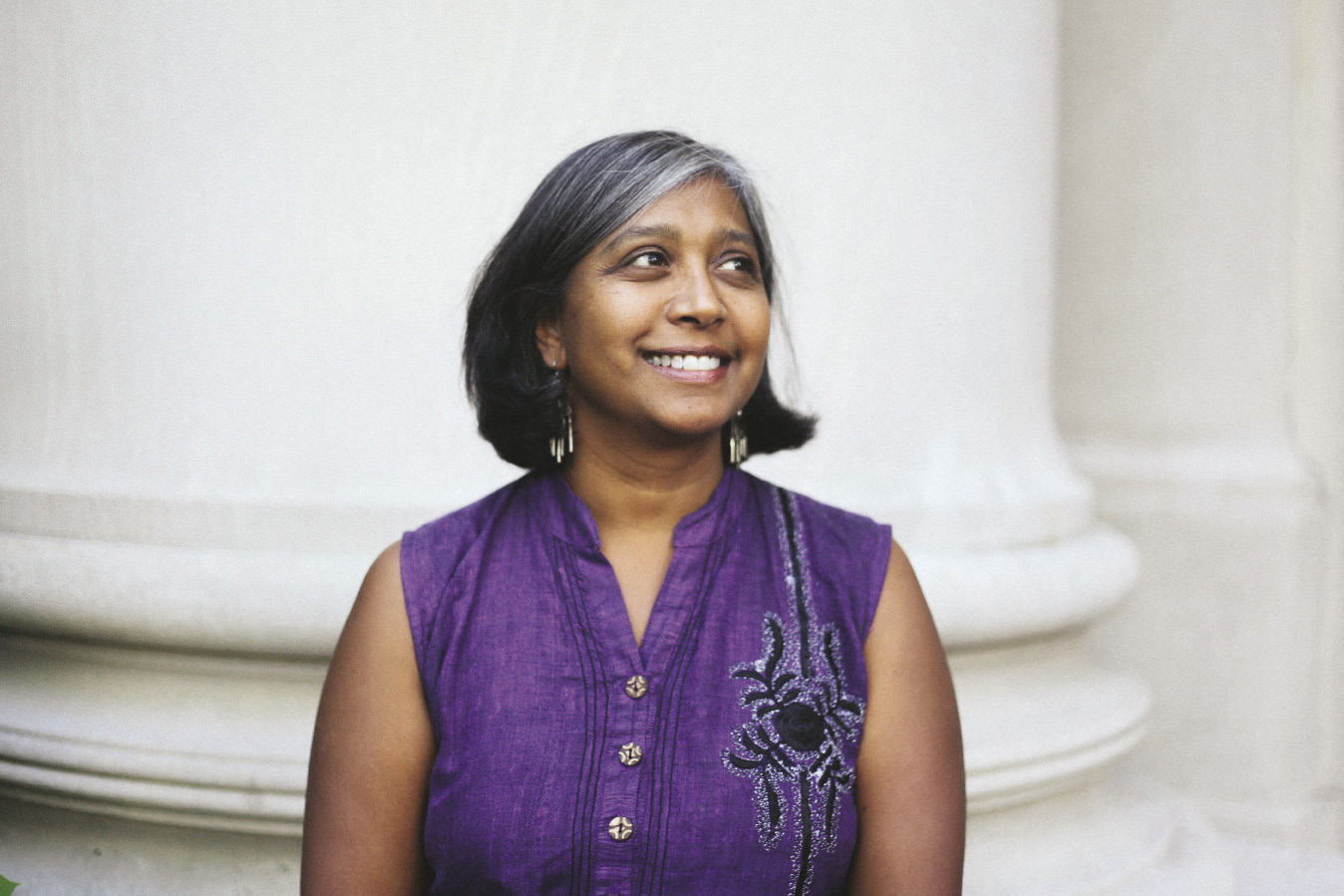As an undergraduate at the University of Michigan, Premilla Nadasen interviewed African-American women who had been involved in social activism in the 1960s. She was surprised when they told her about their desire to stay home and take care of their children—a demand that appeared to contradict what she had learned about American feminist activism.
“This was distinctly different from what I was reading in my [undergraduate] classes,” Nadasen says. Feminism had been framed as a movement for women who wanted to get into the workforce and be free of domestic labor and childcare. “It made me realize that there were multiple forms of feminism in the 1960s that really weren’t part of the scholarly narrative.”

This gulf between what she found in textbooks and her on-the-ground research motivated Nadasen to pursue a career as a historian. Now an associate professor of history at Barnard, she studies the intersections of gender, race, poverty, and labor, and specializes in the untold stories of women who have found themselves on the margins of social justice movements.
“My goal is to help us think about how ordinary people have shaped the world and are continuing to shape it today,” Nadasen says. “It’s important to understand the ways that dominant historical narratives [including feminist narratives] have excluded many voices, particularly those of women of color.”
To that end, her lecture course “Race, Poverty, and Gender” addresses questions of inequality from several angles, including the history of violence against transgender youth and the creation and dismantling of the social safety net. In one session, the students discussed how racial and gender stereotypes about people on welfare, such as the image of the “welfare queen,” led to a broader backlash against public support programs like food stamps.
During a class on food justice—a movement that advocates for healthy food produced under fair working conditions—she invited two workers from a dairy farm in upstate New York to talk to her students by Skype about their experiences with labor organizing. She wanted students to ask themselves, “Where does our milk come from, and what are the conditions under which it’s being produced?” she says. “I think it’s absolutely crucial to draw students’ attention to the voices of everyday people and the basic things they’re struggling for.”
Nadasen has been involved for decades in activism by domestic workers to gain paid overtime and sick days. That work was the spark for her 2015 book, Household Workers Unite: The Untold Story of African American Women Who Built a Movement, which focuses on the stories of seven domestic workers, drawn from interviews and oral histories in libraries and archives. Between the 1950s and 1970s, these women helped win important victories through collective organizing, despite their exclusion from labor unions. Nadasen describes how household workers demanded to be seen as skilled laborers and collaborated with feminist groups to lobby for legislation such as the 1974 amendments to the Fair Labor Standards Act, which extended the minimum wage and other protections to domestic workers. The book won the Sara Whaley Prize from the National Women’s Studies Association.
Some scholars believe the labor movement is in decline, but Nadasen says domestic workers are infusing it with important momentum. And she will keep documenting their stories.
